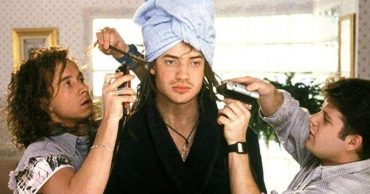Whiplash was a 2014 movie centered around a music student named Andrew Neiman, who wants to become as good as the famous jazz drummer Buddy Rich. As a result, Andrew becomes the student of a famous conductor named Terence Fletcher, who treats his students in a manner that is best described as being outright abusive. For example, there was one moment when Andrew struggled to perform the titular piece, which resulted in Fletcher hurling a chair at him as well as berating him in front of the entire class. With that said, what a lot of people will remember best is the moment at the end of the movie, when instead of falling for Terence’s final attempt to humiliate him, Andrew leads an entire band in a rousing performance that serves as Whiplash‘s equivalent of the big win in a sports movie.
Why Was the Whiplash Ending So Memorable?
The conclusion of Whiplash is a feel-good moment. After all, the viewer has been watching Andrew getting broken down step by step for something like 100 minutes by that point in time, meaning that a sense of satisfaction from watching him turn the tables was perfectly natural. However, what might be even more interesting is the sheer ambiguity of meaning in the whole scene.
In short, the idea that people have to suffer if they want to be great is not exactly a new one. For proof, look no further than sayings from a number of cultures such as, “No pain, no gain,” and, “If you want to become the best of the best, you need to taste the bitterest of the bitter.” As a result, there is a sizable segment of viewers who interpreted the ending to mean that Terence’s treatment of Andrew is what made Andrew a great drummer, which to be fair, is not wholly without cause.
However, there is reason to be skeptical that Terence’s motivation is so simple and straightforward. Simply put, his treatment of his students isn’t harsh so much as cruel, as shown by the fact that it was bad enough that it actually prompted one of them to kill himself. For that matter, there is a fair amount of reason to think that Terence enjoys hurting and humiliating his students, with the last scene being an excellent example. Certainly, there are people who believe that the last scene was a setup by Terence to press Andrew to the point that Andrew will either make or break, but there are also plenty of people who see it as nothing more than Terence’s attempt to humiliate Andrew in a most public manner one more time that failed because Andrew turned out to be made out of tougher stuff than what Terence expected.
With that said, there is also one more important point to be made, which remains relevant even if we assume that Terence was indeed doing his best to motivate his students to greatness. Simply put, even if greatness is the result, is the result worth the price that was paid? By the end of the movie, Andrew had achieved a significant measure of competency at his chosen pursuit, but in exchange, he has broken up with his girlfriend, withdrawn from other people, started behaving in an erratic manner, and has a reputation for being the man who attacked his conductor in front of an entire audience of people who were watching a performance at the time. One can’t help but suspect that this is one of those questions that will have different answers from different people, which on the whole, makes the ending of Whiplash that much more interesting.
 Follow Us
Follow Us





